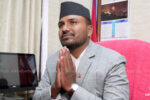KATHMANDU: Researches show that the impact of unharnessed COVID-19 will be far-reaching. Researches show that the impact of unbridled COVID-19 will be far-reaching. It is likely to render millions of people unemployed across the world dealing a blow to the economy trying to stand on its own.
In its recently published report on COVID-19 impacts, ILO the global organizing concerned with events impacting the labor and unemployment, underemployment and working poverty has sought coordinated efforts for a decisive, coordinated and immediate response.
“The economic and labor crisis created by the COVID-19 pandemic could increase global unemployment,” a new assessment by the International Labor Organization (ILO) released on Wednesday says.
When the world has gone pessimistic with the clamping down of most of the industries, theaters, schools, colleges and public events involving mass of people, the global body, however, offers a pacifying note and adds, “Yet, if we see an internationally coordinated policy response, as happened in the global financial crisis of 2008/9, then the impact on global unemployment could be significantly lower.”
Short-time work, paid leave, other subsidies and financial and tax relief, including for micro, small and medium-sized enterprises, sought as a must to help public fight against corona are still a far cry for most of the citizens of the economically backward countries.
The assessment note made public by ILO calls for ‘urgent, large-scale and coordinated measures across three pillars’. The three pillars suggested are all related to workers and their livelihoods: protecting workers in the workplace, stimulating the economy and employment and supporting jobs and incomes.
According to the report, such measures include extending social protection, supporting employment retention, and financial and tax relief.
Relief packages reflect disparity
Heeding such actions in advance many governments of the world have taken some measures offering relief packages to the COVID-19 affected employee, entrepreneurs, debtors and the public. The governments of European countries are offering bigger packages and assurances to their citizens whereas the countries with struggling economies are unable to make rational relief packages.
For example, when Nepal government’s relief package disclosed on Friday’s Press Meet at Singh Durbar included assurance of making essentials available in the market, Lankan President instructed banks and financial institutions to offer a six month grace period for loans obtained by business enterprises and provide working capital for loans at 4 percent.
In the meantime, the US is planning the measures which include two weeks of paid sick leave and up to three months of paid family and medical leave, enhanced unemployment benefits, free virus testing including for those who lack insurance, additional food aid and federal funds for Medicaid.
Short-time work, paid leave, other subsidies and financial and tax relief, including for micro, small and medium-sized enterprises, sought as a must to help public fight against corona are still a far cry for most of the citizens of the economically backward countries.
As the economic impacts of COVID-19 result in the decline in working hours and wages, ILO assessment predicts that underemployment is likely to increase on a large scale. Restriction of movement of the people like service providers is likely to impair the self-employment in developing countries.
Instantaneous and synchronized policy responses
As in other disasters or epidemic coordinated efforts play significantly in such situations, ILO says, seeking the swift and coordinated policy responses. “This is no longer only a global health crisis, it is also a major labor market and economic crisis that is having a huge impact on people,” said ILO Director-General Guy Ryder. “In 2008, the world presented a united front to address the consequences of the global financial crisis, and the worst was averted. We need that kind of leadership and resolve now,” he added.
Most vulnerable groups
The ILO note presages that people in less protected and low-paid jobs esp. Youth and older workers and women and migrants turn most vulnerable in such situations.
However, ILO’s Director General Guy Ryder is optimistic about the curbing capacity of the world. Citing the past economic crisis the world handled efficiently he said, “This is no longer only a global health crisis, it is also a major labor market and economic crisis that is having a huge impact on people. In 2008, the world presented a united front to address the consequences of the global financial crisis, and the worst was averted. We need that kind of leadership and resolve now.”
The director general of ILO offers two key tools that can help mitigate the damage and restore public confidence.
“Firstly, social dialogue, engaging with workers and employers and their representatives, is vital for building public trust and support for the measures that we need to overcome this crisis.
Secondly, international labor standards provide a tried-and-trusted foundation for policy responses that focus on a recovery that is sustainable and equitable. Everything needs to be done to minimize the damage the people at this difficult time,” he concluded.









Comment